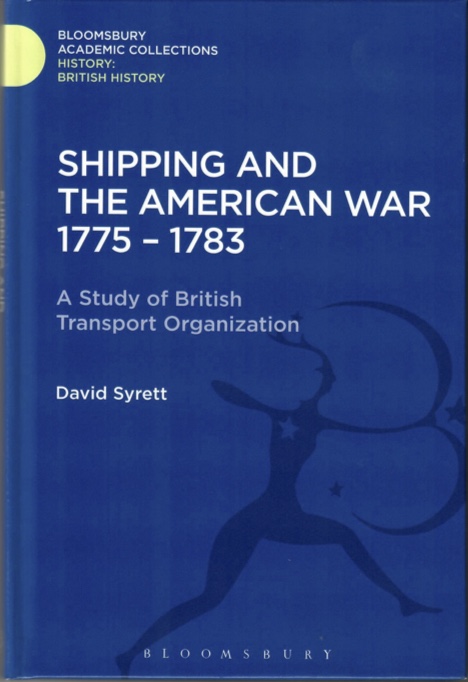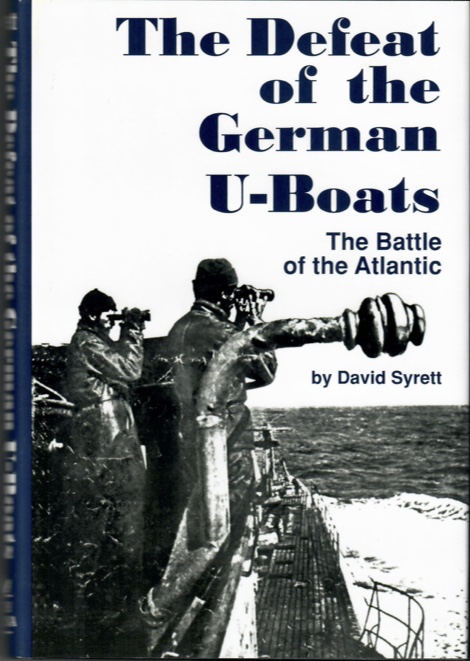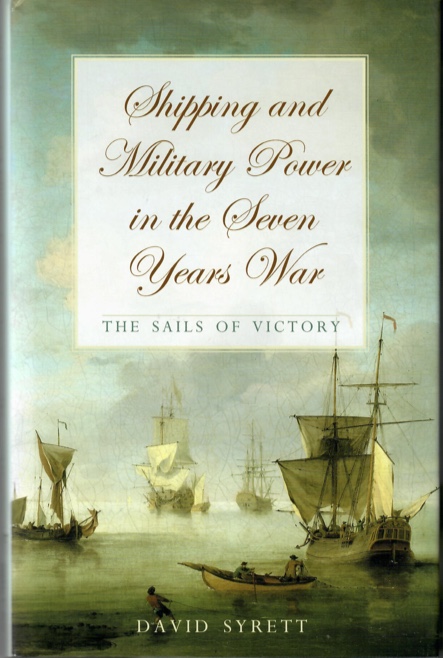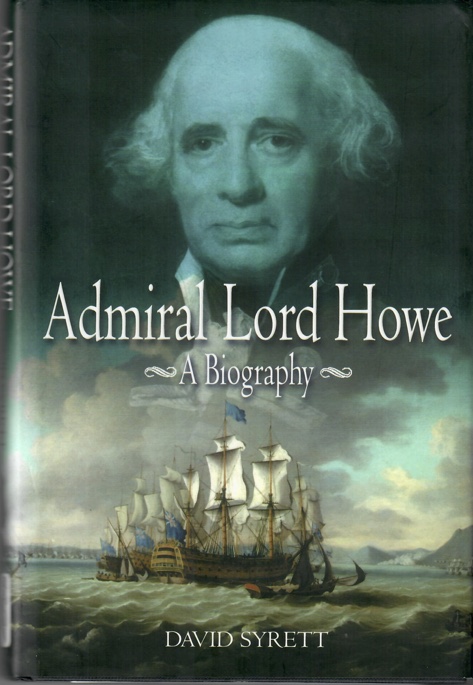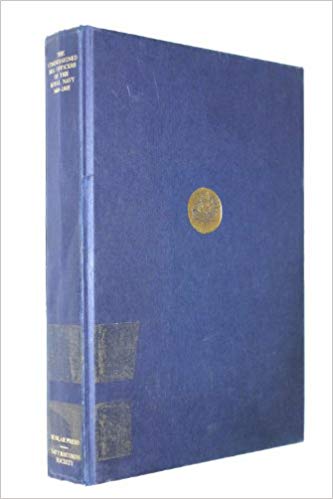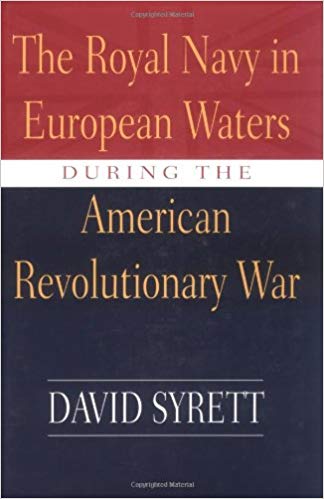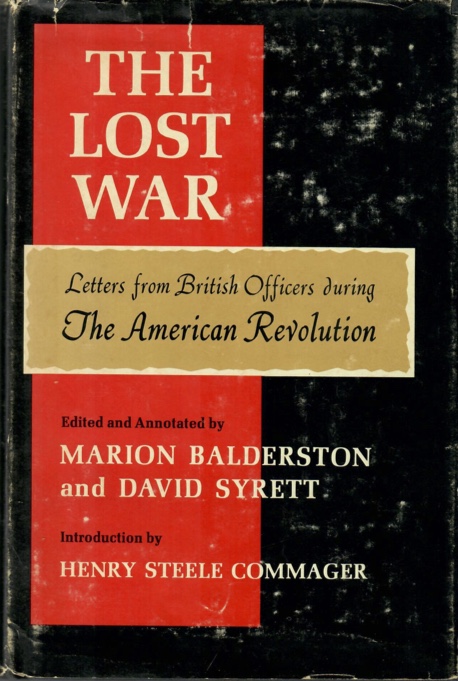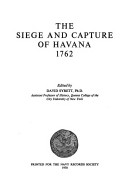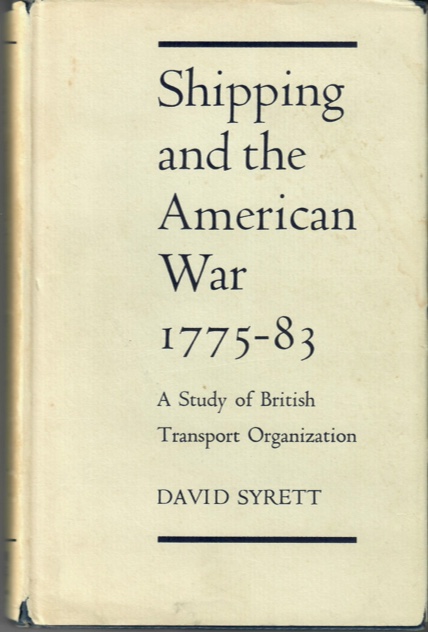The Siege and Capture of Havana, 1762, Navy Records Society (1970)
The Lost War: Letters from British Officers during the American Revolution (edited with Marion Balderston) (1975)
The Royal Navy in American Waters, 1775-1783 (1989)
The Commissioned Sea Officers of the Royal Navy, 1660-1815 (1994)
The Victualling Board Charters Shipping, 1775-82, Institute of Historical Research (1995)
Prelude to Victory: The Battle for Convoy HX 231, 4-7 April 1943, Institute of Historical Research (1997)
The Battle of the Atlantic and Signals Intelligence: U-Boat Situations and Trends, 1941-1945, Navy Records Society (1998)
The Royal Navy in European Waters during the American Revolutionary War (1998)
Admiral Lord Howe: A Biography (2005)
Shipping and Military Power in the Seven Year War, 1756-1763: The Sails of Victory (2008)
The Defeat of the German U-Boats: The Battle of the Atlantic (1994, 2010)
The Battle of the Atlantic and Signals Intelligence: U-Boat Tracking Papers, 1941-1947, Navy Records Society (2002)
The Rodney Papers, Vol. I, 1742-1763, Navy Records Society, 2005
The Rodney Papers, Vol. II, 1763-1780, Navy Records Society, 2007
The Eyes of the Desert Rats: British Long-Range Reconnaissance Operations in the North African Desert, 1940-43 (2014)
Shipping and the American War, 1775-83 (1970, 2015)
Battle of the Nile, August 1798, by Whitcombe, from the collection of David Syrett
In Memoriam: David Syrett (1939-2004)
Queens College Distinguished Professor of History
In a lifetime of research, writing, and teaching, with 15 monographs (five published posthumously) and over 90 journal articles on American and British naval, maritime and military history, Professor Syrett is considered the most active author in naval history of his generation.
He approached historical scholarship as both a discipline and as a serious discourse about things that mattered. In his first article-length publication, “Town-meeting Politics in Massachusetts, 1776-1786”, William and Mary Quarterly, XXI/3 (1964), where he sought to explain the workings of Massachusetts political institutions, he concluded that this was largely based on the difference between form and actuality. On the one hand there was the concept of the town meeting in which most adult males were permitted to vote and questions were decided by a kind of rule that approached democracy; on the other hand, the town meeting as a device was neither better nor worse a form of government than the men who controlled it, and as he argued, almost always characterized by the willingness of its officials to break or ignore the rules by which they professed to live.
His first book-length publication was Shipping and the American War (1970) --re-published in 2015 by Bloomsbury Press. As the only defeat suffered by Britain in a series of wars with France, which began with the Glorious Revolution in 1688 and ended with the defeat of Napoleon at the Battle of Waterloo in 1814, the American Revolutionary War was almost a unique experience. David argued that it was a war that posed unprecedented strategic, administrative and logistical problems for Britain, despite its naval strength, in having to maintain and lead a great army and a large naval force miles away from home, given the logistics of the 18th century. David further delved into these issues in his following two monographs, The Royal Navy in American Waters (1989) and The Royal Navy in European Waters (1994). Assessing the importance of the Royal Navy’s failure to stop American blockade runners in allowing Yankee rebels easy access to European arms and munitions, Syrett found that the problems confronting British naval power were much more complex than just blockading the American coast. Turning to politics and the human factor in his quest for an answer Syrett concluded that the military leaders, Admiral Lord Richard Howe and his brother General Sir William Howe, ultimately lacked the ruthlessness and determination necessary to fight a war of annihilation.
David went on to write a biography of Lord Howe (2007) where he analyzed Howe’s special relationship to Benjamin Franklin and his attempt in 1774 to negotiate an end to the constitutional deadlock between Britain and its American colonies. In his attempt to find a compromise between “no taxation without representation” and “the overriding supremacy of Parliament,” Howe “showed at worst a great degree of political arrogance and at best a supreme confidence in the ability of two men of good will to work out any problem no matter how difficult” (39). Returning to the American Revolutionary War once again later in his career, David edited the private papers of another of its admirals, in The Rodney Papers: Selections from the Correspondence of Admiral Lord Rodney, vols. 1 & 2 (2005, 2007). Very different from Howe, who was liked by sailors and officers alike, Rodney was overbearing, avaricious and difficult, yet talented as well as an original thinker and one of the great admirals of the 18th century.
A consistent theme in David’s work was the impact of the political and administrative networks of British elite families on the military and naval conflicts of the 18th century. This is shown in The Lost War (1975), co-edited with Marion Balderston. The volume is a two-way correspondence between British officers and the political boss of the Tory party, the Earl of Denbigh, who in his desire to get reliable information set up what amounted to a private news gathering organization for naval, military and political events at the time of the American Revolution. Intermixed with discussions about promotions –displaying the power of patronage and kinship among elite social networks-- were first-hand accounts of some of the great events of the age, making Denbigh one of the best informed men in England.
Another important theme in David’s scholarship was how British state administration conducted successful maritime conflicts in the 18th century. In Shipping and Military Power in the Seven Years War (2008), he challenged the traditional view of the British government as an irrational, incompetent, corrupt and negligent institution by revealing how an efficient naval and supplies administration ensured naval strategic mobility over both France and Spain, making the Seven Year War the most successful one in British history. As early as 1970, David had already edited the private papers on The Siege and Capture of Havana, part of the Seven Years War, published by the British Navy Records Society. With that volume he became the first scholar from America to publish in the Navy Records Society.
An expert on both the British Navy during the American Revolution and the naval warfare of World War II, he became increasingly aware of the importance of reliable information and its timely use by different actors and arms of the state, as well as of the importance of a well-run state finance and fiscal system in allowing a navy to win or lose a war, whether this was in the 1700s or in the 1940s. As a specialist in both the 18th and 20th centuries, he related the logistics of war to institutional politics and the networks of power in an original manner: his work was anything but dull!
A research historian to his core, David turned to another important naval battle, the Battle of the Atlantic in WWII. Unwilling to readily accept the mystique of Ultra --the cryptologic collections made available for the first time in the 1970s-- for the battle of the Atlantic, David turned instead to an exhaustive research analysis by going through copious primary sources and thousands of decoded transcripts of communications between the German forces (over 49,000 messages sent from the German submarines to their HQ) that enabled the Allies to locate the U-boats and proceed to destroy them in The Defeat of the German U-Boats: The Battle of the Atlantic (South Carolina University Press, 1st ed. 1994; 2nd ed. 2010). He was able to document when and how governments on both sides of the Atlantic actually understood the value of such intelligence and coordinated in the best way and most timely fashion to make the best use of it. The result was a victory that turned the tide of war decidedly in favor of the Allies. David understood that getting information and using it were two different things and concentrated his research and analysis on this distinction. He followed his monograph with numerous articles on the Battle published in academic journals and with two volumes of edited documents, The Battle of the Atlantic and Signals Intelligence: U-Boat Situations and Trends, 1941-1945 (1998) and The Battle of the Atlantic and Signals Intelligence: U-Boat Tracking papers, 1941-1947 (2002).
Ten years after David’s death, his only book-length study on army history, The Eyes of the Desert Rat: British Long-Range Reconnaissance Operations in the North African Desert, 1940-1943 was published in 2014 by Helion Press. Through meticulous research in primary sources over many years, for which David had almost a legendary reputation for persistence, this book analyzes how a relatively small number of dedicated men developed techniques for crossing the depths of ten unmapped and seemingly impassable great deserts of Egypt and Libya by motor vehicle. Considered a virtual primer on how to operate, survive and achieve victory in desert warfare, the book tells the epic story of the soldiers who fought in the British Army’s North African campaign of 1940-43 and for whom doing the extraordinary was commonplace.
For David three things were consistent in his life: his love for the sea, for historical research and for stating his conclusions, whether in a classroom or in print, in an accessible, succinct and direct manner.
His untimely death led his wife Professor Elena Frangakis-Syrett to the sad but necessary duty of ensuring the publication of five of his manuscripts; 10 years after her donation of David’s books to the College’s Rosenthal Library in 2007, she has taken on the task of adding to the Navy Records collection, used by scholars worldwide, to mark this anniversary.


